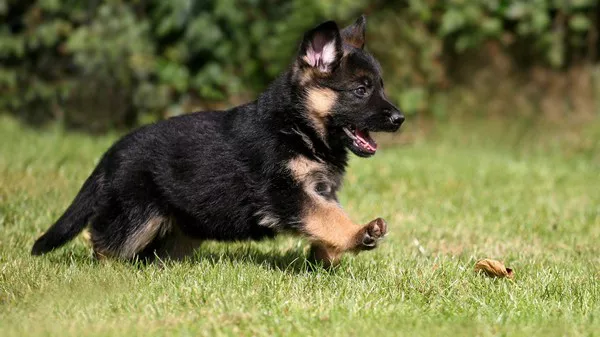As dog owners, we are responsible for the overall health and well-being of our furry companions. One aspect of their health that often raises questions is their bowel movements. Understanding your German Shepherd’s poop frequency and patterns can provide valuable insights into their digestive health. In this article, we will delve into the topic of how many times a German Shepherd typically poops in a day, factors that can influence their bowel movements, and signs to watch for that may indicate potential health concerns.
Normal Bowel Movements for German Shepherds
German Shepherds, like all dogs, are individuals, and their bowel movement frequency can vary. However, on average, a healthy adult German Shepherd will typically have one to two bowel movements per day. Puppies may have more frequent bowel movements due to their higher metabolic rate and growing bodies. It’s important to note that the consistency and appearance of your German Shepherd’s poop can also provide valuable information about their health.
Factors Influencing Bowel Movements
Several factors can influence the frequency of a German Shepherd’s bowel movements. These factors include:
Diet: The type and quality of food your German Shepherd consumes play a significant role in their bowel movements. A diet that is rich in fiber and contains appropriate levels of protein and fat can help maintain regular and healthy bowel movements.
Exercise: Regular exercise stimulates bowel movements by increasing intestinal motility. Adequate physical activity can promote regularity in your German Shepherd’s bowel habits.
Hydration: Sufficient water intake is crucial for healthy digestion and bowel movements. Ensure your German Shepherd has access to clean, fresh water at all times to prevent dehydration, which can lead to constipation.
Stress and Anxiety: Just like humans, dogs can be affected by stress and anxiety, which can impact their digestive system. Changes in routine, environment, or emotional stress can cause irregular bowel movements in German Shepherds.
Health Conditions: Certain health conditions, such as gastrointestinal disorders, food allergies, infections, or parasites, can affect a German Shepherd’s bowel movements. If you notice any significant changes in their poop frequency, consistency, or other accompanying symptoms, it’s important to consult your veterinarian for a proper diagnosis and treatment.
Signs of Healthy Bowel Movements
Knowing what constitutes a healthy bowel movement in your German Shepherd is essential for monitoring their digestive health. Here are some signs of a healthy poop:
Consistency: A healthy stool should be firm, but not too hard or too soft. It should be well-formed and maintain its shape.
Color: The color of your German Shepherd’s poop can vary depending on their diet. Generally, it should be brown, but slight color variations are normal. If you notice significant changes in color, such as black, red, or pale stools, it’s advisable to consult your veterinarian.
Odor: While dog poop is not known for its pleasant smell, extremely foul-smelling stools can be a sign of an underlying health issue. Regular poop should have a mild odor that dissipates relatively quickly.
Frequency: As mentioned earlier, one to two bowel movements per day is considered normal for a healthy adult German Shepherd. Consistency in frequency is important, so any significant changes should be monitored.
Monitoring Your German Shepherd’s Bowel Movements
To ensure your German Shepherd’s digestive health, it’s important to keep an eye on their bowel movements and take note of any changes. Here are a few tips to help you monitor their poop:
Maintain a Routine: Establish a consistent feeding schedule and take your German Shepherd out for bathroom breaks at regular intervals. A routine can help regulate their bowel movements.
Observe and Document: Take the time to observe your German Shepherd’s poop regularly. Note the frequency, consistency, color, and any other changes you may notice. This information can be helpful when discussing your concerns with your veterinarian.
Stay Alert for Warning Signs: Keep an eye out for any warning signs that may indicate digestive issues or health concerns. These signs may include diarrhea, blood in the stool, excessive straining, frequent accidents, or sudden changes in appetite or behavior.
When to Consult a Veterinarian
While minor variations in your German Shepherd’s bowel movements are usually normal, certain situations may warrant a visit to the veterinarian. You should consult your veterinarian if you observe the following:
Persistent Diarrhea: If your German Shepherd has diarrhea that lasts for more than a day or is accompanied by other concerning symptoms, it’s important to seek veterinary attention.
Constipation: If your German Shepherd is straining to poop, has difficulty passing stool, or has not had a bowel movement for more than two days, it’s advisable to consult your veterinarian.
Blood in the Stool: The presence of blood in your German Shepherd’s stool is a red flag and should be evaluated by a veterinarian promptly.
Changes in Behavior or Appetite: Sudden changes in your German Shepherd’s behavior, appetite, or energy levels, along with changes in their bowel movements, may indicate an underlying health issue that requires medical attention.
Conclusion
Understanding your German Shepherd’s bowel movements is an important part of monitoring their overall health and well-being. While one to two bowel movements per day is considered normal for an adult German Shepherd, variations can occur based on factors such as diet, exercise, stress, and health conditions. By maintaining a routine, observing and documenting their poop, and staying alert for any changes or warning signs, you can ensure that your German Shepherd’s digestive system remains healthy. If you have any concerns or notice significant changes in their bowel movements, it’s always best to consult your veterinarian, who can provide appropriate guidance and care tailored to your dog’s specific needs. Remember, a healthy digestive system contributes to a happy and thriving German Shepherd.
Related Topics:


























